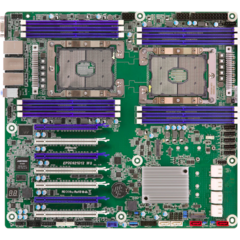What's Intel Microcode?
Go to solution
Solved by Mira Yurizaki,
3 minutes ago, DaemonWarrior44 said:So, I should only turn it on when something's going wrong, right?
I don't think it's something you turn on. It's something you have to apply to the CPU itself. It's like a BIOS update, only for the CPU. Linux just has the capability of applying microcode updates on boot. i.e., once you do it, it's permanent.
Otherwise yes, it's something to consider if you're running into issues and you're certain the outdated microcode is the problem.


.png.255947720031a641abdac78e663b681c.png)

















Create an account or sign in to comment
You need to be a member in order to leave a comment
Create an account
Sign up for a new account in our community. It's easy!
Register a new accountSign in
Already have an account? Sign in here.
Sign In Now